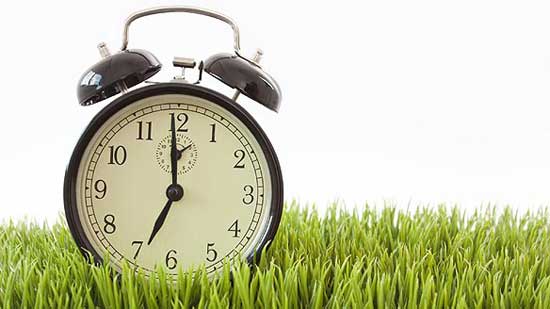
Don’t forget to set clocks forward one hour before going to bed this Saturday night. Daylight Saving Time takes effect locally at 2 a.m. Sunday, March 12.
Daylight Saving Time—the practice of advancing clocks so that evenings have more daylight and mornings have less—was first mentioned by Benjamin Franklin in 1784. The modern idea of daylight saving, however, was proposed in 1895 by entomologist and astronomer George Vernon Hudson and first implemented during World War I.
Following passage of the Energy Policy Act of 2005, Daylight Saving Time was extended one month beginning in 2007. It now starts the second Sunday each March and ends the first Sunday each November.
Tips to ease the Daylight Saving Time transition
- Stick to a workday sleep schedule on the weekend of the time change.
- Go to bed 15 minutes earlier each night, beginning the Wednesday before the March 12 time change.
- Dim lights earlier leading up to the time change and avoid bright lights in the evening, especially from smart phones, computers and TV screens.
- Avoid alcohol and caffeine in the evening.
- Keep the bedroom cool and dark.
- Get morning exercise in the sunlight on the weekend of the time change.
- Eat an early breakfast and dinner on the weekend before, and eat a good breakfast the Monday morning after the time change.